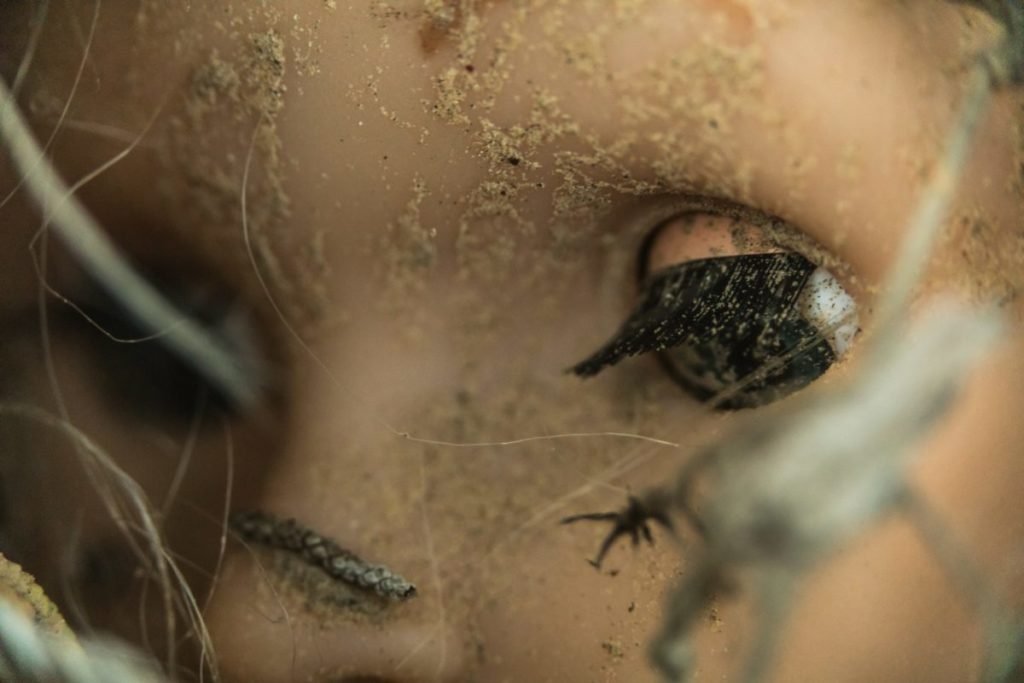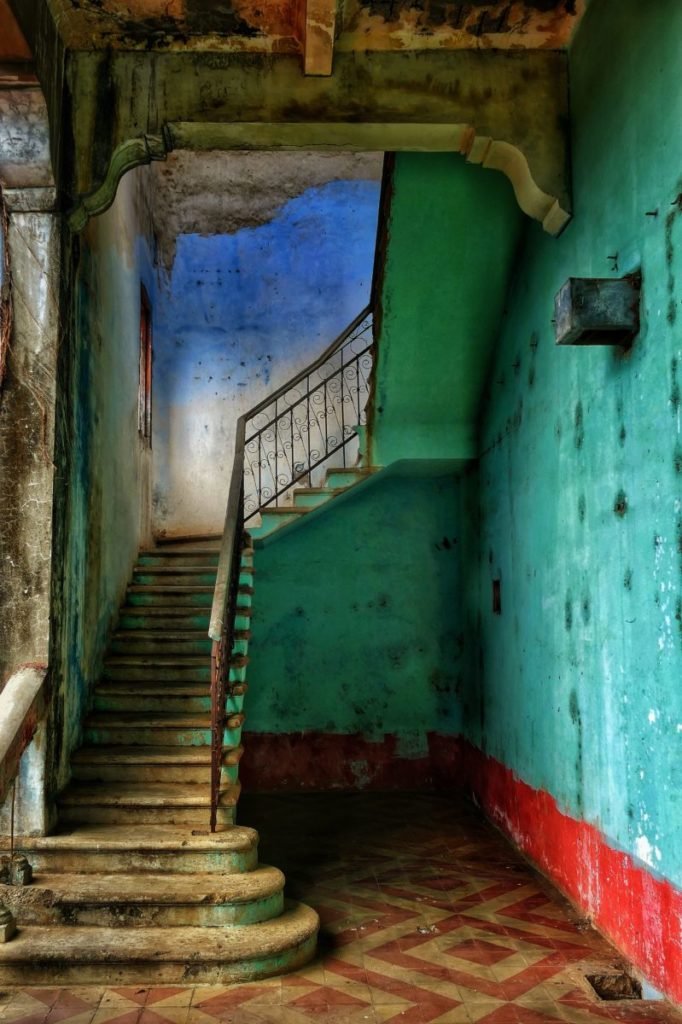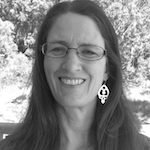
On the third visit, they kicked his stomach and broke his thumbs. The bones cracked like an electrical charge shooting through his entire body, exiting via his skull, as if everything he knew, everything he had ever perceived, was wiped clean. For those few moments, the world flashed white, then just as quickly, his whole reality dumped back down on him, a furious writhing mess he could not make sense of.
Then he blacked out.
When he regained consciousness, he was lying in a pool of his own blood-tinged vomit. He had two thoughts; one a detached acknowledgement that when not experiencing physical pain, it is, in fact, not possible to imagine how all-encompassing pain can be. As if we trick ourselves that it can’t be that bad. The other thought was how senseless it was. Why come back? Did they not know he was already broken? Then he understood—they did know.
He did not get up for two days. When he did, it was because he did not want to be found having soiled himself. Not that anyone was looking. When the visitors, as they were called, were on a rampage, everyone hid. Armed themselves as best they could. Hoarded food and quieted their children.
He cried trying to wash himself. His hands were useless, swollen and purple, clubs rather than hands. To cry because of physical pain was a relief. He sat on the floor of the cast-iron bath. It took several attempts to turn the tap, using the flat edges of his hands. The water was cold and brown with rust. He scooped handfuls of water to sluice himself down. Then he dried himself with a rough towel as best he could and lay on the floor and slept. It was the first sleep he’d had in weeks.
* * *
The first time they’d come, they’d beaten him and killed the dog; the second time, they took his wife and son. He did not know how he’d stayed alive. How he had retained hope. Why he’d chosen to believe, even for a second, that his family might have survived. He knew that to wish for such a thing was to wish them only suffering. So when he heard the screech of tires followed by a dull thud five days after the last visit, he’d thanked God. Everyone knew that sound. It was their trademark.
On the patch of ground outside his house lay the body of his wife. Naked and bound. Only then did he scream with rage and frustration. They had not returned his son. Because he could not dig, he made a pyre from all the loose timber he could find. He set it alight using his teeth to strike the match and left.
* * *
To leave the village was regarded as a form of suicide. The village, as they called it, consisted of a dozen houses and a space that had been a park. Part of a settlement on the edge of the city, the wreck of which remained a few kilometers away. Until recently they would send in scavenging parties, but it had become too dangerous. The visitors had control of the city center. He walked the deserted streets, past destroyed buildings. The pavement was cracked, and weeds were pushing through the gaps. Vines scaled the corners of office blocks.
How quickly nature reclaims a place when we are gone, he thought.
As the heat rose, he retreated into an alleyway. He dozed, the late afternoon sun acting like a drug on his exhausted body. He woke when he felt himself being grabbed around the ankles and dragged. As he struggled, his right-hand thumb flung out and hit a wall. The pain jolted him fully alert.
“Hey,” he yelled.
The hands around his ankles let go.
“Be quiet,” a voice hissed.
As he got to his feet he saw a small figure standing before him. It appeared to be female.
“Shhh,” she said, a finger at her lips, “Come with me.”
She turned and moved through a doorway, indicating he follow. They walked down a short flight of stairs into a basement. It was surprisingly warm. Cardboard boxes were stacked against the walls. In the center was a table and chairs.
“I’m Narla,” the girl said. She removed her hat and shook out her roughly cropped hair. He thought she looked to be about twenty, but it was hard to tell.
“Show me your hands.” She lifted each one up to examine. The touch of her calloused fingers on his skin sent shards of pain up his arm, making him nauseous.
“You need surgery, I bet,” she said. “Not going to happen, so…”
She reached into a cardboard box and pulled out various items: bandages, scissors, tape. She pointed to a chair.
“Sit down.” It sounded like an order. She smeared a clear gel onto his hands. “That might help numb them,” she said. “I’ll strap them, but you won’t be able to do much. They’ll heal but not the same.” She looked him in the eyes. “You’ll get arthritis, for sure.”
Arthritis, fractures, infection, toothache. All potential death sentences in this new world. She bandaged his hands then lifted his shirt to reveal the bruising around his ribs and abdomen. “You’re lucky they didn’t rupture your spleen.”
“Why are you doing this?” he said. “Who are you?”
“I told you—my name’s Narla. This is what I do—help the stupid souls who wander in here, not realising they are just making—their –” she paused, “the visitors, job easier.”
She peered at him.
“What did they do to you?”
When he didn’t answer she said, “No matter—I know what they do. What did you hope to find, coming here?”
He held her gaze.
“They didn’t return my son, only my wife.”
“Oh,” she said, falling silent.

Everyone knew what it meant when they kept the children. The girls they kept until they were finished with them. They never came back. The boys they recruited; trained, brainwashed—whatever was needed to do to turn them into themselves. Too many stories to be myth had been told—of sons, brothers; young men and boys returning as perpetrators, barely recognizable to their families—deranged ghosts of their former selves, prepared to inflict pain and suffering on people they used to love and know. Worse than strangers.
“I want to find him,” he said, “You know—before…”
Narla picked up his club-like hands, now thick with bandages.
“Word is they are lying low for a while. You won’t find them. And if you did? What are you going to do? You couldn’t stop them before.”
He folded his padded hands over hers, pressing them together in a prayer pose.
“I have less to lose now,” he said.
“In that case,” she said, pulling free, “you’d better eat something.”
She lit a camping stove and set a pot of what looked like soup on the flame. When it was hot, she poured some into a bowl and sat before him, a spoon in her hand. She blew on the soup to cool it, then held it to his lips.
“So, what’s your name?” she asked between spoonfuls.
“Phillip,” he answered. “My name’s Phillip.”
* * *
He stayed for several weeks while his hands healed. Each day she’d disappear for several hours, then return and report. A few wanderers she patched up and sent on their way.
“No sign of them so far,” she said.
He tried to leave, but she stopped him.
“What’s the point? You don’t know where they are. You can’t hold a weapon or fire a gun with those hands. What are you going to do?”
Her face broke into an unexpected smile and she chortled with laughter.
“That’s if,” she added, “you even had a gun, or say, any weapon at all.”
At night, they’d eat the same meal—a thin soup—made, she said, from whatever she could scrounge.
“Don’t ask,” she said when he lifted out a stringy piece of meat and held it up as a question.
He glanced around at the boxes on the floor.
“Where did you get this stuff?” he said.
“My mother was a nurse at a medical center. It used to be above us,” she pointed toward the ceiling. “This is the only part left. They used to keep supplies here.”
“I’ve even got antibiotics,” she said. “Hidden. For emergencies.”
“Where’s your mother now?” he said.
She reached over and squeezed his bandaged right hand, hard.
“Where do you think?” she said.
* * *
She instructed him to start moving his hands to strengthen the muscles. She gave him a tennis ball she’d found to help improve his grip. He was practicing holding a knife when she returned from one of her forays.
“They are back,” she said. “We’ll have to stay in. No lights.”
That night they sat in the dark. After a while, they heard voices and a vehicle stopping. Phillip crept to the window and looked out. Narla tried to pull him away. He brushed her off. A group of young men were huddled around a vehicle across the road. He could see the tips of their cigarettes. One struck a match and held it to a taller man’s cigarette, cupping his hands around it. The momentary light illuminated their faces. Phillip recognized the expression in their eyes; in the taller one’s—depravity, in the smaller one—fear. He remembered their laughter, his wife’s screams.
He slid down to the floor.
“It’s them,” he said.
Narla came over and peered through the window.
“Yeah, I know them. They’ve followed me once or twice, but haven’t caught me yet. I don’t stay here all the time, usually. Don’t want them to find my stuff.
“The big one’s Tory.” She shuddered. “He’s vicious. The skinny kid—they call him Spike. He hasn’t been around long. About three months, I think.”
She looked into Phillip’s eyes.
“That’s how long it takes, you know, for them…to comply. If they last that long. I’ll find out where they are, but it can’t come back to me. If you leave—no trail, no names. Got it?”
“Got it.”
* * *
She led him out two days later, blindfolded.
“In case you talk,” she said. “And you will, if they catch you.” She led him seemingly in circles, down sidestreets, and through buildings until he was disorientated and dizzy.
She took off his blindfold. It was almost dark. She drew a map in the dust and showed him the way. Then she handed him a bag. It contained food, water, a knife, a gun. And a hand grenade.
He looked at the supplies and nodded. He knew better than to ask where she’d gotten them.
She turned to leave, but he grabbed her hand. His thumbs hurt, but he wouldn’t let go.
“If you need to leave, find my house.” He pulled a piece of paper from his pocket. On it he’d scrawled, in barely readable script, directions to his house.
“If I’m not there, it’s yours,” he said. “Tell my neighbor Tom I sent you. If I am—well, you can stay as long as you want.”
She took it and said, “Good luck.”
* * *
He watched them for three days. There was no sign of Tory, the leader. On the third day, a vehicle careened out, tires squealing. Phillip moved closer. The boy, Spike, was alone at a brick outdoor fireplace. He was frying meat and singing, a discordant tune that sounded like a chant. Phillip crept up behind him and held the gun to his head. He had to use both hands to support the weight.
“I want my son,” he said.
“I don’t know your son,” the boy said. He dropped the frypan and his shoulders hunched up toward his neck as he tried to shrink away.
“Turn around, Spike.”
The boy jumped at the sound of his name, then turned. His eyes were bloodshot. He pulled back his lips and displayed his teeth. They were yellow. His blue T-shirt was stained with grease. Phillip shook the gun at him.
“He’s younger than you. Dark hair. You took him from Lancefield, six weeks ago. With a woman. His name’s Ethan.”
Spike coughed and spat. “You’re too late,” he said.
Phillip pointed the gun at the boy’s head. His hands were aching and beginning to tremble.
The boy sneered, showing even more of his yellow teeth.
“He’s in there,” he said, pointing to a shed. “Behind them doors.”
“Open it.”
Spike crab-walked to the shed and pushed open the double-timber doors. A cloud of flies burst out and a pungent stench filled Phillip’s nostrils. In the semi-dark, he could make out a figure hanging from a beam in the roof.
Even without seeing the face, he knew. His son. He turned and lashed out, striking Spike on the back of the head with the gun. Phillip staggered back into the light, a sound like a loud roaring echoing inside his head. He sat down and retched, the bitter taste of bile from his near-empty stomach searing his throat.
Spike lay on the ground, holding his head. There was blood seeping through his fingers.
“He done it his’self, you know. Dumb shit. Shoulda just joined us. Tory’s not that bad. Better than being dead.” He looked at the blood on his hands.
Phillip aimed the gun at him.
“You know what, I don’t ev’n care.” Spike glared at him, then rolled onto his back, legs curled up like an insect. “You know what your kid—what’s his name?—Ethan—said to Tory? He said, ‘I don’t care what you do, I won’t become you.’”
He turned over onto his stomach.
“Tory’s—” he struggled for the word, “you know, dis-em-bowel-ed people for less.”
He shook his head and some droplets of blood landed on Phillip’s clothes.
“But that kid—it were like—Tory had to prove something. It was weird.”
He sat up in a squatting position, rocking back and forth on the balls of his feet.
“In the end, Tory got fed up. I knew what he were gonna do when he come back. I seen him do it before.”
He shuddered and looked at Phillip. Something in the boy’s eyes made Phillip lower the gun.
“I gave the kid the rope. He begged me, you know?”
Spike tipped forward onto his hands and knees.
“I wish I’d had the guts to do what he did,” he said, pressing his face into the ground.
He raised his head and turned to Phillip.
“You better git. They’ll be back soon. Tory’s gonna be mad when…”
As Phillip turned to go, the boy grabbed his trouser leg.
“Maybe you should shoot me. It’d be better than—what they’ll do to me, if they figure out I giv’ him the rope.”
Phillip aimed the gun at him again, holding it with one hand this time. Even if he’d wanted to, he couldn’t do it. He didn’t have the strength in his fingers to depress the trigger, and the weight of the gun was making his hand shake. He thought about his son, Ethan, tying the noose and kicking the crate away. He rubbed his eyes with his other hand. He lowered the gun. He reached into his bag and pulled out the grenade. He handed it to Spike. The boy looked at it with wide disbelieving eyes. Tears ran down his cheeks, making lines through the dirt.
Phillip walked away, back through the streets, until he found an old office building he could hide in. He threw the gun away. Then he lay down and wept.
* * *
He went back the next day before dawn. As he approached the clearing, he could smell burnt flesh. Parked a few meters away was the vehicle he’d seen outside Narla’s basement, the glass shattered. The ground where he had seen Spike the day before was now a shallow crater, barely a metre wide. In the center, among the scattered bricks of the fireplace, were the remains of two people. Phillip avoided the bodies, pausing only once to pick up a scrap of blue material. He opened the shed and went inside. He stood on a wooden crate, the same one he knew his son had kicked over, and clumsily cut Ethan’s body down. They fell together, the weight of his son pushing him against the earth. He made a second pyre, this time out of the shed doors and the wooden crates lying around.
He lit it as the sun broke the horizon, then walked away as the smoke billowed out into the sky. He walked until he reached the village. His house was still standing. The windows were broken and the door smashed in. As he stood in his kitchen, he heard a noise outside.
“Phillip?” A voice said. It was his neighbor Tom.
“In here,” he answered. Tom stepped over the splintered door into the room. He had a wound on his face, extending from the center of his forehead to his right eye. The eye was swollen closed, and half-dried clumps of mucoid blood clung to the bruised skin.
“You’re back,” he said.
“I am,” said Phillip.
“That’s good,” said his neighbor. He surveyed the room with his good eye. “There’s been a girl around, asking about you. Said her name’s Narla. She left this for you.”
Tom handed him a small box.
“Said she’d come back in a month,” he said, “for a visit.”
He paused.
“To see if you’d survived.”
It was a box of bandages, antibiotic tablets, and a tube of analgesic cream, for use on arthritic joints. He took out the tube and squeezed a small amount onto each palm. He rubbed it slowly into each thumb. When he finished, he looked up. He handed the bandages and tablets to Tom.
“Looks like you need these more than me,” he said.

Share this post with your friends.

